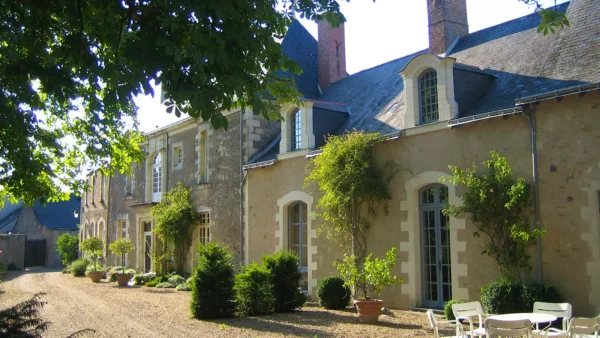The longtime winemaker at Domaine des Baumard brought new acclaim to Chenin Blanc in Anjou
Aug 18, 2023
Considered a master of Chenin Blanc in the Loire Valley, Jean Baumard of Domaine des Baumard passed away on Aug. 8. The Baumard family has been cultivating vines on their Anjou estate since 1634, but Jean was responsible for the quality surge of the domaine’s modern era—and for restoring prominence to the dry wines of Savennières and sweet wines of Quarts de Chaume.
Baumard was born in 1931 and trained as a winemaker in Dijon and Bordeaux before joining his father, Charles, in 1953 at the winery, located in Rochefort-sur-Loire in western Loire, about 10 miles downstream from Angers. He fully took over the winery in 1955 and set out to expand the family’s vineyard holdings throughout Anjou, acquiring 14 acres in the Quarts de Chaume—the first grand cruof the Loire, responsible for one of the world’s great sweet white wines. Later, he purchased 36 acres in the prestigious Savennières appellation, giving him vineyards on both banks of the Loire.
“Jean was a tireless innovator, perhaps even a bit of a revolutionary, particularly when it came to viticulture,” said Frederick Ek, founder of Classic Wine Imports, a U.S. importer for Domaine des Baumard. “I remember well in the early ’70s when he called to tell me he was ‘going across the river’ and buying land in Savennières—that was a big deal at the time, as no other winery owned vineyards on both sides. Jean accomplished remarkable things there—it cannot be overstated how important he was in the revitalization of the Savennières appellation.”
By championing a mineral-driven, vibrant style for Chenin Blanc, rather than the traditional heavier, botrytis-affected style, Baumard was widely credited with producing some of the region’s finest, most complex wines. He was also among the first to promote sustainable practices in the vineyard in the 1950s, such as eliminating chemical sprays and introducing cover crops between vine rows to improve soil health. Unafraid to challenge the status quo, he lobbied the organization in charge of appellation rules, the INAO, to increase the spacing between rows, and promoted vertical trellising and leaf pulling–all techniques that increased ripeness and enabled Savennières to shed its reputation for thin, tart wines.

Many of his innovative experiments in the winery were eventually adopted throughout the region, including colder fermentation temperatures to preserve aromatics, and allowing wines to proceed through malolactic fermentation. In 1964 he bottled a dry cuvée from grapes grown in the Quarts de Chaume. He never stopped pushing boundaries, and in 1989 introduced the ‘special cuvée’ concept in Savennières, producing a ‘Trie Spéciale’ from grapes harvested in as many as seven or eight passes through the vineyard.
He ruffled more than a few feathers with his techniques, but his efforts helped elevate quality and prestige. Baumard was elected by his peers to the presidency of the Fédération Viticole de l’Anjou in 1971 and three years later revived the Union des Syndicats d’AOC du Val de Loire. Baumard’s love of teaching made him a popular professor of viticulture and oenology at the École Supérieure d’Agriculture et de Viticulture in Angers and after retiring from day-to-day operations in the winery in 1990, he returned to education, creating a sought-after oenology course at the Université d’Angers.
His son, Florent, gradually took over winemaking duties, starting in the early 1990s, and helms the 84-acre estate today. “I am only trying to continue what my father did,” the younger Baumard told Wine Spectator in 2004. “Not revolutionize it.” The wines show increased purity and terroir expression, but much at the domaine remains unchanged, particularly the vivid, energetic and pure style his father pioneered. “We try to pick mature grapes, not just concentrated ones.”








